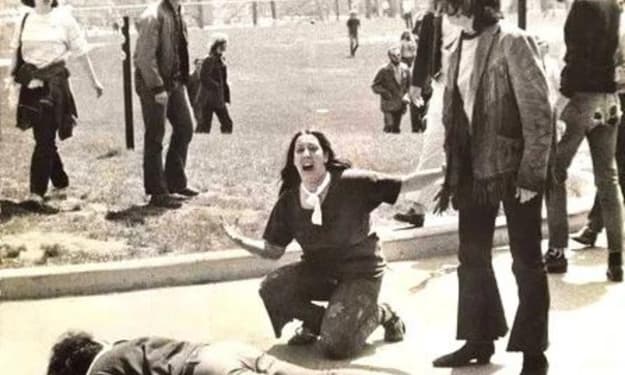From Juvenile Delinquency to Serial Killers: The Evolution of the Criminal Mind
Exploring the Dark Side: A Comprehensive Guide to Understanding the Psychology of Criminal Behavior

Since quite some time, society has been faced with the difficulty of addressing the issue of juvenile delinquency, which is a problem that affects young people. Still, only a very small number of teens who break the law will go on to commit more serious crimes as adults, like murder or assault as adults.It’s possible that the vast majority of young people who break the law do things like stealing or vandalizing that aren’t seen as very bad. If you want to avoid committing crimes in the first place, you need to know what causes them. This is because these factors contribute to the expansion of criminal behavior.
Maltreatment in childhood, which can come in the form of abuse or neglect, has been found to be one of the most important reasons why people turn out to be criminals after being looked into and recorded. This can be either physical abuse or emotional neglect. According to the findings of a number of studies that have been carried out on the subject, children who have been subjected to traumatic experiences or who have been abused are at a greater risk of developing aggressive or antisocial behavior as a method of coping with their experiences. This is indicated by the fact that these studies have been conducted. They may have trouble controlling their sentiments, and as a result, they may turn to criminal behavior as a means of coping with the feelings of rage or frustration that they experience. This may be the case because they have difficulty managing their feelings. It’s possible that they have problems keeping their feelings in check because of this.
Being exposed to violence or crime in the family or community is another thing that may lead to criminal behavior. This element may play a part in the development of criminal conduct. Children who are brought up in environments in which criminal behavior is considered the standard are more likely to think that this kind of behavior is normal or even desirable as they get older if they were brought up in environments in which criminal behavior is considered the standard. This is due to the fact that they went through childhood with the expectation that it would always be the case. They could be put under pressure to adhere to the standards of their surroundings, and as a result, they might engage in behavior that is against the law.
One thing that makes the problem worse is the lack of strong social support or positive role models that people can try to be like. It’s probable that children who are raised in circumstances where they don’t have good connections with adults are more likely to have criminal inclinations when they become older. The journal Child Development has published research in support of this claim. The likelihood that children who grow up in such circumstances will live in poverty as adults supports this theory. This is a correlation, not a cause. If people do not get direction and assistance, it is likely that they will not have the knowledge, abilities, or coping strategies necessary to deal with the problems of life in a manner that is acceptable to the greater community. This is because these things take time and effort to acquire.
There are some signs that personality disorders and mental illnesses may play a role in why people do bad things. These disorders and diseases are referred to as “psychiatric conditions.” [Criminals] are more prone to struggle with issues of this nature than the general population. People who have illnesses such as psychopathy or antisocial personality disorder may exhibit characteristics such as a lack of empathy or impulsivity, both of which put them at a greater risk of engaging in criminal behavior. Those who suffer from these disorders also have a greater propensity toward engaging in illegal activities. It is possible that some people have trouble forming healthy relationships with others and may see engaging in illegal activity as a way to fulfill a need in their lives that cannot be fulfilled in any other way. It’s possible that some people would rationalize their participation in criminal activities as a way to fulfill a desire they have.
It is essential to keep in mind that not everyone who participates in delinquency as a child will go on to conduct more serious crimes as an adult. This is something that should be kept in mind at all times. This is something that must always be kept in mind and should not be forgotten. Additionally, a wide range of various contexts can lead to criminal activity, and every instance of this issue is distinct from the others. On the other hand, if we are able to acquire knowledge of the risk factors and the early warning signs, we may be in a position to intervene and prevent certain individuals from continuing down a path that ultimately results in illegal activity. This would put us in a position to prevent individuals from engaging in illegal activity.
In order to put a stop to the evolution of criminal activity, one requires a strategy that incorporates a number of different techniques and components from a range of different sources. This could mean giving children who are thought to be at risk positive role models and support, as well as early intervention and therapy for children who have been abused or who have been through traumatic events. In some situations, it may also be necessary to take part in good therapy to treat mental illness or personality disorders. This may be the case in cases where it is mandatory for the patient to get treatment.
As was said in the conclusion, trying to figure out how a criminal’s mind changes from juvenile delinquency to more serious crimes is a difficult task that needs to take into account a number of different factors. To deal with this problem, you need a strategy that takes a lot of different things into account. Abuse, neglect, exposure to acts of violence, an insufficient amount of good social support, and mental illness are all examples of things that have the potential to contribute to the development of criminal conduct in a person. If we can figure out what puts certain people at risk and take preventative steps sooner, we might be able to help those people live happier, more productive lives. It is through this that we would be able to aid these people in leading lives that are more positive and successful for themselves.
About the Creator
Enjoyed the story? Support the Creator.
Subscribe for free to receive all their stories in your feed. You could also pledge your support or give them a one-off tip, letting them know you appreciate their work.





Comments
There are no comments for this story
Be the first to respond and start the conversation.